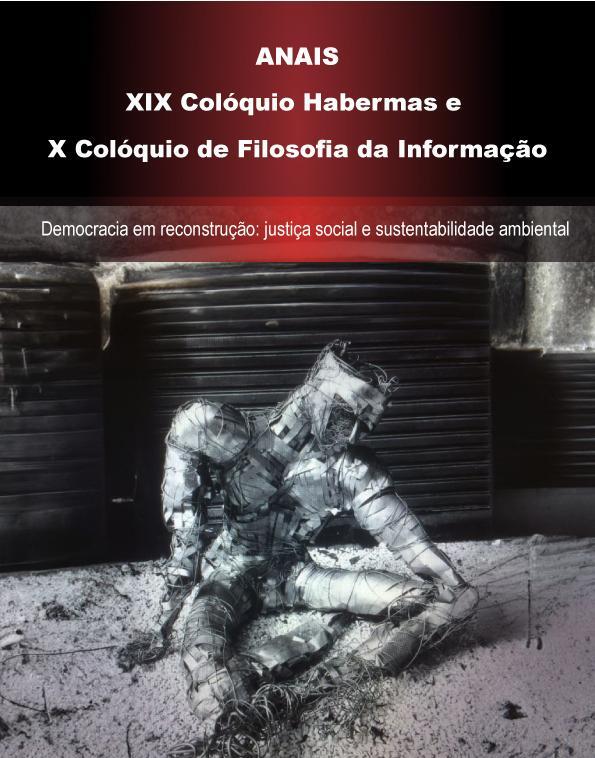Humanistic information studies
DOI:
https://doi.org/10.21728/logeion.2023v10nesp2.p387-405Keywords:
humanistic information studies; humanistic approach to information; normative professionalization.Abstract
This article presents the proposal for humanistic information studies, particularly based on the observations of the Dutch philosopher Harry Kunneman. This work begins with the investigation and discussion of the hegemonic notion of what Information is within Information Science, linked to its functionalist origin. In this discussion, it is worth highlighting the mathematical theory of communication and systems theories in the demarcation of the concept of information. The limitations of functionalist approaches to Information are responded to by the search and development of critical theories. Discusses the functionalist origin of the concept of information. In the following sections, Kunneman's articles are discussed, starting with the perspectives of a humanistic approach to Information, with emphasis on the modes of knowledge production. The following item deals with normative professionalization aimed at exercising professions, prioritizing humanistic values. Normative professionalization and its interdisciplinary character are linked to the modes of knowledge production. It is concluded that there is a need to insert the concepts covered in the research into the daily life of the information professional, aligning the ethical concerns incorporated with life issues.
Downloads
References
ARAÚJO, C. A. A. A ciência da informação como ciência social. Ciência da Informação, v. 32, n. 3, Brasília, set./dez. 2003. Disponível em: https://revista.ibict.br/ciinf/article/view/985. Acesso em: 27 out. 2023.
ARAÚJO, C. A A. O pensamento funcionalista na arquivologia, na biblioteconomia e na museologia. PontodeAcesso, v. 9, n. 2, p. 2–29, 2015. Disponível em: https://periodicos.ufba.br/index.php/revistaici/article/view/6995. Acesso em: 09 out. 2023.
BROWN, John Seely; DUGUID, Paul. The social life of information: Updated, with a new preface. Harvard Business Review Press, 2000.
CALLON, Michel. Four Models for the Dynamics of Science. In: JASANOFF, Sheila et al (Org.). Handbook of science and technology studies. Londres: Sage Publications, Ltd, 1995. Cap. 2. p. 29-63.
CAPURRO, R; HJORLAND, B. O conceito de Informação. Perspectivas em Ciência da Informação, Belo Horizonte, v. 12, n. 1, p. 148-207, jan./abr. 2007. Disponível em: https://periodicos.ufmg.br/index.php/pci/article/view/22360. Acesso em: 09 out. 2023.
DAY, Ronald E. The modern invention of information: Discourse, history, and power. SIU Press, 2001.
DIAS SOBRINHO, José. Universidade e novos modos de produção, circulação e aplicação do conhecimento. Avaliação: Revista da Avaliação da Educação Superior Campinas, v. 19, n. 3, p. 643-662, nov. 2014. Disponível em: http://dx.doi.org/10.1590/s1414-40772014000300007. Acesso em: 24 out. 2023.
GIBBONS, M. et al. The new production of knowledge. the dynamics of science and research in contemporary societies. London, Thousand Oaks, New Delhi: Sage Publications, 1994.
HABERMAS, J. Teoria de la acción comunicativa: complementos y estúdios previos. 2. ed. Madrid: Ediciones Cátedra, 1994.
KUNNEMAN, H.P.. Ethical complexity, hermeneutics and mode 3 knowledge. In: DERKX, P.; KUNNEMAN.H. (Eds.). Genomics and democracy. Towards a 'lingua democratica" for the public debate on genomics. Amsterdam/New York: Rodopi, 2013, p. 105-129.
KUNNEMAN, Harry. Humanistic information studies: a proposal. Logeion: Filosofia da Informação, Rio de Janeiro, RJ, v. 1, n. 2, p. 5–22, 2015. Disponível em: 10.21728/logeion.2015v1n2.p5-22. Acesso em: 30 set. 2023.
KUNNEMAN, Harry. Humanistic information studies: a proposal. Part 2: normative professionalization. Logeion: Filosofia da Informação, Rio de Janeiro, RJ, v. 2, n. 1, p.11-32, set. 2015/fev. 2016. Disponível em: https://doi.org/10.21728/logeion.2016v2n1.p11-32. Acesso em: 30 set. 2023.
MARCUSE, Herbert. A ideologia da sociedade industrial: o homem unidimensional. Rio da Janeiro: Zahar, 1973.
NOWOTNY, H; Scott, P. K.; Gibbons, M. Re-thinking science: Knowledge and the public in an age of uncertainty . Cambridge, UK: Polity, 2001.
SHANNON, Claude E.; A Mathematical Theory of Communication. 1948. Reprinted with corrections from The Bell System Technical Journal, v. 27, p. 379–423, 623–656, jul./oct., 1948. Disponível em: https://people.math.harvard.edu/~ctm/home/text/others/shannon/entropy/entropy.pdf Acesso em: 09 out. 2023.
SILVESTRI, K. V. T. AS TEORIAS DO CONHECIMENTO: A FUNDAMENTAÇÃO EPISTEMOLÓGICA DAS CIÊNCIAS HUMANAS. Revista Ensaios Pioneiros, Bragança Paulista, v. 2, n. 2, p. 63–77, 2019. DOI: 10.24933/rep.v2i2.161. Disponível em: https://revistaensaiospioneiros.usf.edu.br/ensaios/article/view/161. Acesso em: 27 out. 2023.
ZUBOFF, Shoshana. In the age of the smart machine: The future of work and power. Basic Books, Inc., 1988
WEAVER, Warren. Recent Contributions to The Mathematical Theory of Communication, sep. 1949. Disponível em: http://ada.evergreen.edu/~arunc/texts/cybernetics/weaver.pdf. Acesso em: 28 jun. 2011.
WOOD JUNIOR, Thomaz. Origens do produtivismo acadêmico e o caminho do impacto social do conhecimento. 2016. Disponível em: https://www.revistaensinosuperior.gr.unicamp.br/artigos/origens-do-produtivismo-academico-e-o-caminho-do-impacto-social-do-conhecimento. Acesso em: 25 set. 2023.
Downloads
Published
Issue
Section
License
Copyright (c) 2023 Logeion: Filosofia da Informação

This work is licensed under a Creative Commons Attribution-NonCommercial-ShareAlike 4.0 International License.
The journal is published under the Creative Commons - Attribution - Noncommercial - Share Alike 3.0 Brazil.
The published work is considered collaboration and therefore the author will not receive any remuneration for this as well as anything will be charged in exchange for publication.
All texts are responsibility of the authors.
It’s allowed partial or total reproduction of the texts of the magazine since the source is cited.














